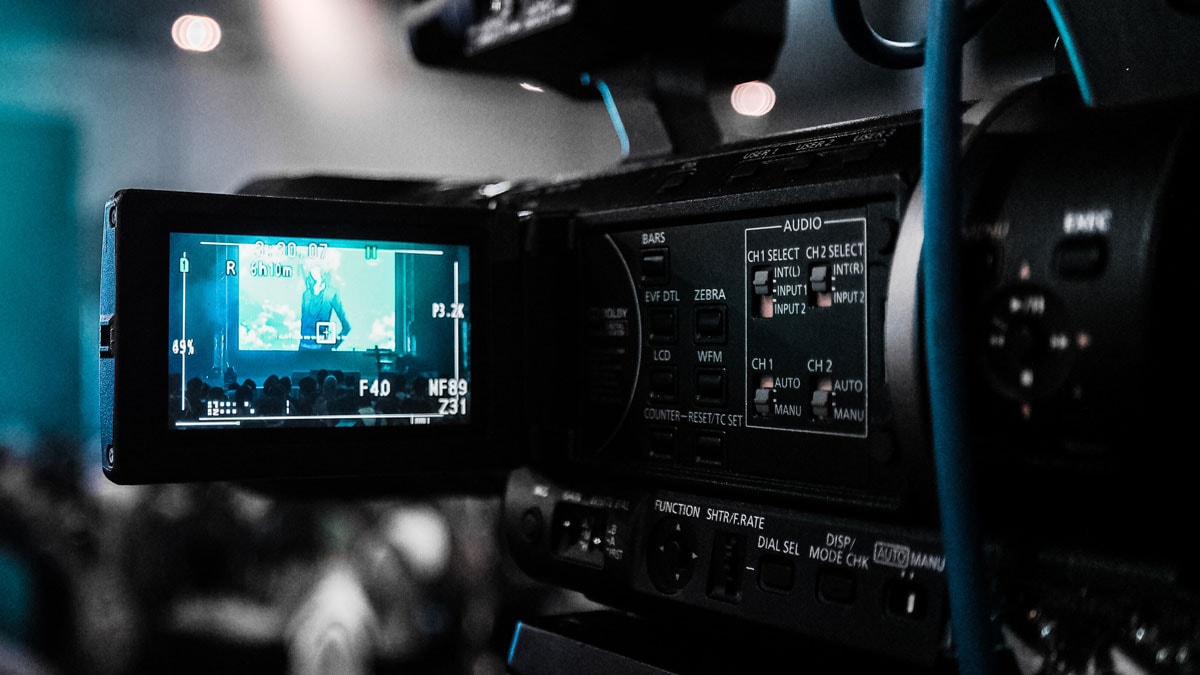The evolution of film, from flickering images on a big screen to immersive, digital experiences, is an incredible journey of creativity, innovation, and yes, technology. But hold on to your popcorn! The real showstopper in the movie industry is, surprisingly, software.
The Dawning of the Digital Age in Film

Credit: Pexels
READ MORE: The Orville Season 4 Release Date, Cast, Plot & Everything You Need To Know
Remember when movies were, quite literally, larger than life? Imprinted on massive, celluloid film reels and projected onto a silver screen, they held us in their thrall. Fast forward to the present. Films are now digital, delivered to us through streaming platforms, and even created using software and computers.
The Power of Automation in Film Production

Credit: Pexels
READ MORE: Depp V Heard Netflix Release Date, Cast, Drama & Everything You Need To Know
Digital transformation has thoroughly reshaped the movie industry. Today, automated software solutions form the backbone of film production. Enter DevOps automation, an unsung hero in the wings, ready for its close-up.
- Scalable Cloud Infrastructure: Cloud-based DevOps automation tools provide scalable infrastructure to handle the massive data involved in digital filmmaking. This includes high-resolution video files, 3D models, and special effects databases, which require significant storage and compute power.
- Continuous Integration and Deployment: Just like in software development, continuous integration and deployment play a crucial role in digital film production. These processes ensure all digital assets and edits are integrated in real time and the final output is ready for deployment, reducing the production timeline significantly.
- Quality Assurance: Automated testing in the DevOps process aids in quality assurance for digital effects, rendering, and overall output. This eliminates the guesswork and ensures a high-quality viewing experience for audiences worldwide.
DevOps automation solutions streamline the film production process. Think about all the moving parts in a film – storyboards, scripts, costumes, props, lighting, sound, and so much more. A solution that automates, integrates, and manages all these elements, across all stages of production, sounds like a dream. But it’s a reality, and it’s called DevOps automation.
Harnessing the Power of Software in Film

Credit: Pexels
READ MORE: Good Omens Season 3 Release Date, Cast, Plot & Everything You Need To Know
Let’s break it down. Software isn’t just about crunching numbers or managing spreadsheets. In the context of film, software becomes a magical wand, capable of conjuring up worlds, animating life-like characters, and rendering stunning special effects. Consider these areas:
- Digital Asset Management: Managing and organizing the gargantuan amount of digital assets created during a film production is no small task. Software solutions allow for secure storage, easy retrieval, and efficient management of these assets.
- Real-Time Collaboration: With film crews often spread across the globe, real-time collaboration tools are vital. They enable immediate feedback and seamless coordination, keeping everyone on the same page (literally and metaphorically).
- Data Analytics: Big data analytics software helps dissect audience preferences, optimize marketing strategies, and even predict box office performance. Software-driven insights are transforming how films are marketed and distributed.
Rendering and Special Effects
Software doesn’t just work behind the scenes. It’s also the star of the show. Today’s stunning visual effects, from epic battle scenes to surreal dreamscapes, owe a debt to software solutions.
The rendering process, once a time-consuming task that required a room full of computers running for days, can now be expedited with automated software solutions. Special effects, too, have benefited greatly from software advancements, with realistic simulations, particle effects, and character animations now at the fingertips of talented artists.
Digital Distribution: Revolutionizing Film Accessibility
Following the wonders of software in rendering and special effects, the next frontier that technology has conquered is film distribution. With the emergence of digital distribution platforms, films have broken free from the confines of physical cinemas and have reached global audiences at a scale and speed that was previously unimaginable.
The rise of streaming platforms like Netflix, Amazon Prime, and Disney+ has significantly changed the distribution game. These platforms rely heavily on software solutions for various purposes. From encoding and transcoding films into different formats suitable for streaming, to managing the vast libraries of digital content, and even to using algorithms to personalize recommendations for users, software is central to their operations.
Furthermore, the analytics capabilities of these software tools allow filmmakers and producers to gauge viewer response in real-time. This data-driven approach is slowly transforming the way films are produced, with audience preferences playing a more significant role than ever before. This democratization of film viewing and distribution is yet another testament to the game-changing role software plays in the film industry.
The Future is Now
Just as films transport us into imagined realities, software transports the film industry into a future of unlimited potential. As technology advances, software will continue to play a starring role in this evolution. Whether it’s through AI, VR, or automation, software is the quiet revolution that is set to keep the movie industry rolling, from reels to real-time.
The role of software in the film industry is a testament to human creativity and innovation. With its powerful capabilities, it’s not just shaping the future of film but also creating it, one frame at a time. Here’s to the next scene in this exciting saga!
What do you make of this feature? Let us know your thoughts in the comments below.
What do you make of this story? Let us know in the comments below or on our Facebook, Twitter or Instagram pages! And if you enjoy listening to film podcasts, why not check out our podcast, The Small Screen Podcast, wherever you get your podcasts!




















There are no comments
Add yours